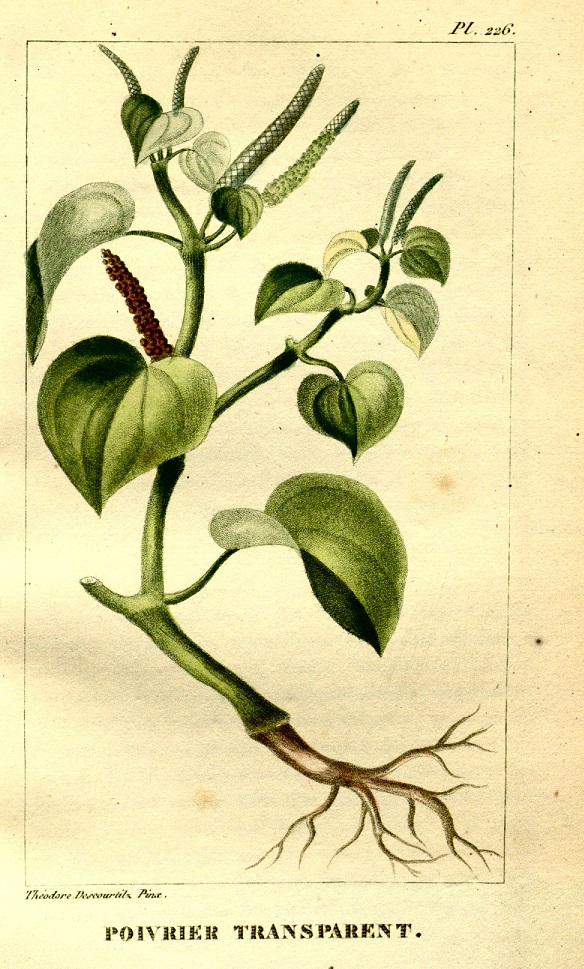PEPEROMIA PELLUCIDA L. - SHINY BUSH
 Synonyms
Synonyms
Peperomia exigua, Peperomia translucens, Piper pellicudum L.
Common name
Càng cua, Cao hu jiao, Clearweed, Coracaozinho, Cow-foot, Erva-de-vidro,
Herbe à couleuvre, Konsaka wiwiri, Lingua de sapo, Man-to-man, Olasiman ihalas, Pak krasang, Pansit pansitan,
Pepper elder, Pépéromie, Rangu-rangu, Rat-ear, Shiny bush, Suna-kosho, Ulasimang bato.
Family
Piperaceae (Pepper family).
Overview
Shiny bush is a common fleshy, tropical annual herb in Suriname
growing up to 1 feet tall.
The stem is initially erect and glabrous; the fleshy leaves are heart shaped, shiny
light green and it has very small bi-sexual flowers growing in the form of cord-like spikes arising
from the leaf axils.
The fruits are also very small; round to oblong, ridged; first green later
black. They have only one single seed.
Shiny bush has a mustard-like odor.
The plant can be utilized as a vegetable (cooked or raw) and is great in salads, but the shiny bush has also many
medicinal applications.
Suriname's Traditional Medicine
A solution of the fresh juice of the stem and leaves is used against eye
inflammation (conjunctivitis).
It is also applied against coughing, fever, common cold, headache,
sore throat and diarrhea. Other appications are against kidney - and prostate problems as well high blood pressure (hypertension).
Used in Brazil for the natural treatment of abscesses, furuncles, gout, rheumatic pains.
This plant is reported to have analgesic, antifungal and antibacterial activity against Bacillus
subtilis, Escherichia coli (E. coli), Pseudomonas aeruginosa and Staphylococcus aureus.
Shiny bush is also being studied for its use in the treatment of arthritis and gout.
Hardiness
USDA zone 9B - 11.
Propagation
Seeds and cuttings.
Culture
The plant needs shade and loose moist soil. Plant in frostless spots; needs high
humidity.
|

